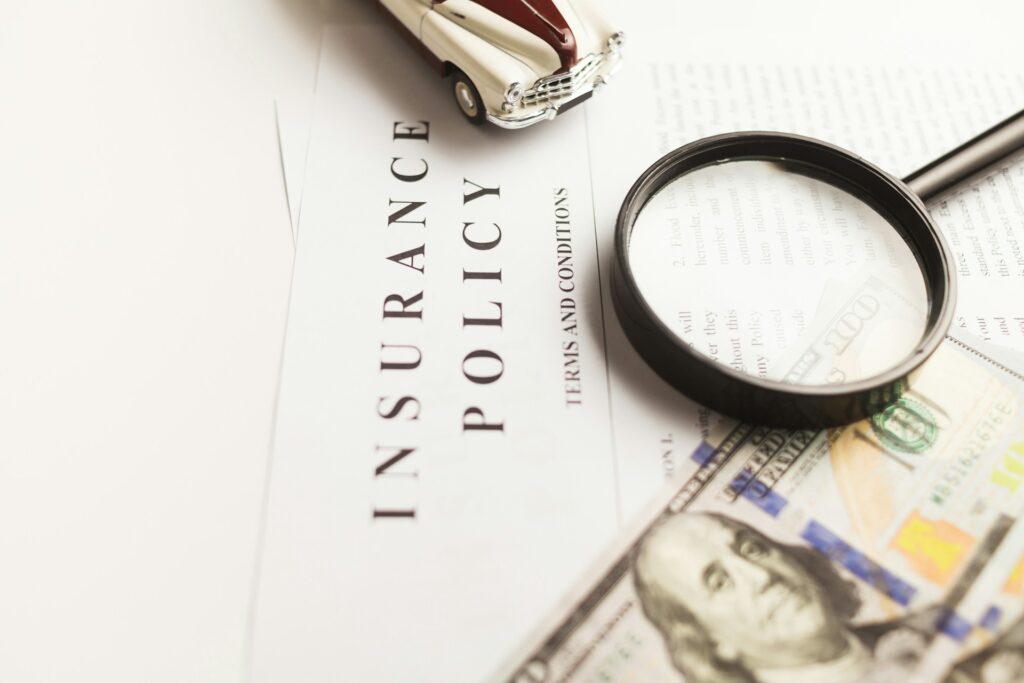In Which States Do I Need Personal Injury Protection Coverage?
FREE CASE REVIEW FREE CASE REVIEW ⟶Table of Contents:

Being involved in a car accident can be an intensely stressful experience. This may especially be the case when the crash has resulted in serious injuries to either you or your passengers. You may be facing a difficult recovery period, missed work, and mounting medical bills – among other struggles.
Depending on where you live, personal injury protection insurance coverage can help ease the financial burdens associated with a car accident. While not every state mandates that drivers carry this kind of coverage, many policyholders find that this added protection gives them peace of mind while on the road.
In this article, we will discuss what personal injury protection coverage is, as well as which states require this kind of protection to be included in auto insurance policies.
Personal Injury Protection Coverage Explained
Personal injury protection (PIP) is part of a car insurance policy and is often referred to as no-fault insurance. PIP covers medical expenses, lost wages, and other costs related to you or your passengers being injured in a car accident – regardless of who is at fault for the collision.
Personal injury protection insurance is mandatory in some states and optional or not offered at all in other states. It should be noted that PIP insurance does not cover property damage or your liability to the other driver if you caused the accident. Thus, PIP coverage works hand in hand with liability coverage.
What Personal Injury Protection Covers
The purpose of PIP coverage is to provide compensation for injuries and certain other losses related to a car accident – without delay. In general, PIP claims are paid out regardless of who caused the auto accident. Thus, there is no need to prove fault against the other party before receiving your benefits.
Depending on the state you live in, PIP insurance may cover such things as:
- Hospital and medical expenses: PIP will help cover medical costs for you and your passengers after an accident, including emergency medical services, hospital stays, surgeries, and prescription medication
- Rehabilitation expenses: PIP may cover physical and occupational therapy, as well as chiropractic treatment, as part of your recovery
- In-home care: If you need medical assistance while recovering from your injuries at home, PIP can help with this cost
- Lost wages: PIP may provide a measure of compensation if you are unable to work for a time as a result of your injuries
- Essential household services: PIP insurance can help pay for services you can no longer perform because of your injuries, such as house cleaning, yard work, and childcare
- Survivor benefits: If you lose your life in an auto accident, your PIP insurance can help replace your lost income for your surviving dependents
- Funeral expenses: PIP can help pay for funeral expenses after a car accident
PIP coverage may result in receiving financial compensation for your injuries sooner, as you will not have to wait for the insurance company to determine fault after the accident.
States That Require Personal Injury Protection Coverage
12 states in our nation require drivers to have a minimum amount of PIP insurance coverage. Again, such coverage is in addition to liability insurance, which is mandatory in every state except New Hampshire.
The required amount of PIP insurance varies by state, as follows:
- Delaware — Minimum amount of $15,000 PIP coverage required
- Florida — Minimum amount of $10,000 PIP coverage required
- Hawaii — Minimum amount of $10,000 PIP coverage required
- Kansas — Minimum amount of $4,500 PIP coverage required
- Massachusetts — Minimum amount of $8,000 PIP coverage required
- Michigan — Minimum amounts of required PIP coverage may vary
- Minnesota — Minimum amount of $40,000 PIP coverage required
- New Jersey — Minimum amount of $15,000 PIP coverage required
- New York — Minimum amount of $50,000 PIP coverage required
- North Dakota — Minimum amount of $30,000 PIP coverage required
- Oregon — Minimum amount of $15,000 PIP coverage required
- Utah — Minimum amount of $3,000 PIP coverage required
The exact expenses to be covered by your own personal injury protection may vary based on your insurance company, the state you reside in, and your policy limits.
Further, depending on where you live, your PIP policy may have an insurance deductible, which is the amount you’re responsible for covering toward the cost of a claim. In most instances, your insurance company subtracts your deductible from your settlement.
States Where Personal Injury Protection Coverage Is Optional or Can Be Waived
In 5 states and Washington, D.C., policyholders are allowed to either add PIP insurance to their coverage or waive it in writing.
Areas in which there is more flexibility in the PIP requirements are:
- Arkansas — PIP coverage is optional
- Kentucky — Requires a minimum amount of $10,000 PIP coverage but can be waived in writing
- Maryland — Requires a minimum amount of $2,500 PIP coverage but can be waived in writing
- Texas — Requires a minimum amount of $2,500 PIP coverage but can be waived in writing
- Washington, D.C. — PIP coverage is optional
- Washington State — Requires a minimum amount of $10,000 PIP coverage, but can be waived in writing
Though personal injury protection coverage is not required in these states, time and again, it proves to be a valuable resource for those injured in a collision. Choosing to go without PIP coverage when it is available to you means you are taking on more financial risk should an accident take place.
Contact Experienced Car Accident Attorneys for the Help You Need
A serious car accident can turn your life upside down in the blink of an eye. Critical injuries can negatively impact your quality of life in the long run. In such an event, it is essential to have the right kind of insurance benefits for you and your family.
In states where PIP coverage is available or required, many policyholders feel relief in knowing that, regardless of who is at fault for an accident, the medical expenses of the driver and passengers can be promptly met. That said, rules vary from state to state, and insurance policies can be confusing.
After an accident, you may need help understanding the coverage limits, claim procedures, and any necessary coordination of benefits to maximize the compensation available to you. The national legal team at Big Auto Accident Attorneys is adept at handling all manners of car accident cases and insurance negotiations for injury victims across the country.
We have the resources, organization, and determination to get you and your loved ones the restitution you deserve after an accident. Reach out to us today at 1 (844) BIG-AUTO or fill out our online form for a free case evaluation. A member of our team is standing by to help 24 hours a day, 7 days a week.
Photo by Vlad Deep on Unsplash

Content reviewed by managing attorney, Nic Edgson. Nic has been an Arizona-licensed lawyer for more than a decade and focuses his law practice on helping people seriously injured in car accidents and truck accidents. He has represented thousands of clients and recovered more than $50 Million Dollars fighting for their injuries and medical bills. Throughout his legal career, Nic has helped those injured through some of the most difficult times in their lives.

